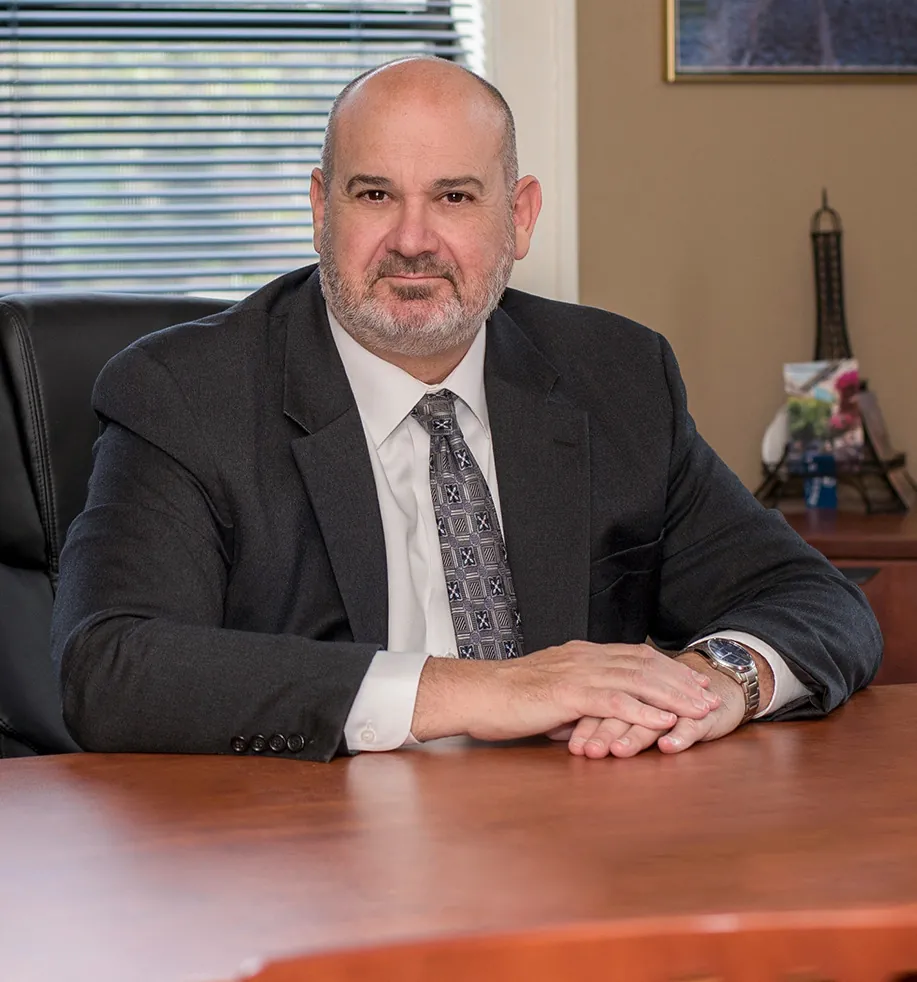Repercussions to a possession of a controlled substance offense can last several years and can result in a felony conviction. A convicted felon may face several obstacles, like the inability to find stable employment or housing. In the state of Florida, a convicted felon must register in the county they reside with the sheriff’s office to be photographed and finger printed under Fla. Stat. § 775.13.
Additionally, if an individual is convicted of a drug conviction in Florida, they can lose their driver’s license for a minimum of two years.
Gainesville Possession of a Controlled Substance Attorney
A conviction of possession of a controlled substance in the state of Florida is a serious offense with consequences that can affect an individual for years. If you are facing drug or narcotics charges contact the Galigani Law Firm. Dean Galigani is experienced in defending individuals with possession of controlled substance offenses throughout the counties of Alachua, Levy and Marion. Contact the Galigani Law Firm at (352) 375-0812 for a free consultation today.
Information Center:
- What Does Possession of a Controlled Substance Mean in Florida?
- Definition of Possesion of a Controlled Substance in FL
- Controlled Substance List in FL
- Definition of Constructive and Actual Possession
- Is Possession of a Controlled Substance a Felony in FL?
- Armed Possession of a Controlled Substance
- Alachua County Drug Court
- Additional Resources
What Does Possession of a Controlled Substance Mean in Florida?
In the state of Florida, it’s illegal to use, sell or own illegal drugs. If you’re found with drugs on your person, car, or home, then you’ll likely be charged with possession of a controlled substance. The term “controlled substance” simply means any illegal drug that is prohibited under the law unless you are authorized. Examples include cocaine, heroin, marijuana, and some prescription drugs such as Vicodin or Xanax.
A person can either be in actual or constructive possession of a controlled substance. A controlled substance is considered in your actual possession if it was found on your person. Usually, people found in actual possession had drugs in their pocket, purse, or it was in their hands. Constructive possession is when a person has access to the controlled substance, but it may not be in their vicinity. For example, if you had a controlled substance in a locked box underneath your bed you would be in constructive possession.
The reason for this is because you had complete control and access over the drugs. Although it wasn’t on you at the time of the arrest, you could easily obtain the drugs and had knowledge of where they were located.
Definition of Possession of a Controlled Substance in Florida
The state of Florida defines a controlled substance as any substance listed in Schedules I-V of Florida’s Comprehensive Drug Abuse Prevention and Control Act, which can be found in Vhapter 893 of Florida’s statutes. A drug schedule is the classification system used by the Federal Drug Administration regarding controlled substances. A Schedule I drug is usually considered as having a high potential for abuse, whereas a Schedule V drug is usually considered as having the lowest chance of abuse.
Controlled substances can include doctor prescribed medications and street drugs. Some examples of these drugs include Xanax, Percocet, Valium, Fentantyl and Oxycotin.
Controlled Substance List in Florida
It is unlawful for an individual to be in actual or constructive possession of a controlled substance unless it is prescribed by a doctor under Fla. Stat. § 893.13.
Listed below are some controlled substances prohibited under Florida law. This is by no means an exhaustive list.
- Marijuana
- Heroin
- Cocaine
- Methamphetamines
- Opium
- Fentanyl
- Acid or LSD
- Percocet
- GHB
- Synthetic Cannibinoids
- Valium
- DMT
- Ketamine
- PCP
- Xanax
- MDMA or Ecstasy/Molly
- Mescaline or Peyote
- Salvia
- Metabolic Steroids
Definition of Constructive and Actual Possession
Florida law has two meanings of possession, actual and constructive.
Actual possession means an individual had physical possession of the drug. This meaning can include:
- The drug was on their body,
- The drug was in their clothing
- The drug was within their reach, and/or
- The drug was in their hand.
Constructive possession usually means an individual:
- Was aware that the drug was in their presence,
- Had the intent to possess the drug, and/or
- Had the ability to take control of the drug.
Is Possession of a Controlled Substance a Felony in Florida?
A conviction for possession of a controlled substance is a felony of the third degree. A felony of the third degree is punishable by a sentence of up to five years in a Florida state prison and/or a fine up to $5,000 under Fla. Stat. § 775.082.
Under Fla. Stat. § 775.084, if an individual who receives a felony of the third degree conviction is considered a repeat felony offender by the court, they can face an extended prison sentence of up to 10 years in a Florida state prison.
Armed Possession of a Controlled Substance in Florida
Florida doesn’t have a particular statute or law that enhances the penalties of drug possession if a firearm is present. However, offenders may face enhanced penalties if they were armed and trafficking illegal drugs. You’ve probably heard the term drug trafficking before, but the exact legal definition under Florida law defines drug trafficking as:
- Knowingly selling, purchasing, delivering, importing by bringing into Florida, manufacturing; or
- Knowingly being in constructive possession of controlled substances in certain amounts as specified by the statute
Having a firearm present, displayed, used, threatened to use, or attempted to use during the commission of a drug trafficking offense will result in enhanced penalties. The crime will be reclassified based on what your original charge would have been without the firearm. For example, if the crime would have been charged as a second-degree felony without a firearm, then it’ll be enhanced to a first-degree felony.
Alachua County Drug Court
An alternative to the standard penalties of a possession of a controlled substance conviction can be the Alachua County Drug Court Program. The program is a supervision and treatment program for third degree, non-violent felony drug offenders and contains pretrial diversion and post plea elements.
A conviction may be avoided upon successful completion of the program. If an individual is terminated from the program, reinstatement of the initial sentence to their offense is possible.
Those eligible for consideration for the program must have the following requirements:
- A pending third degree felony drug related offense,
- Currently not on probation and/or
- No prior violent convictions.
Requirements of the program’s participants can include substance abuse evaluation and treatment, intensive legal case management, regular and random drug tests, and/or weekly monitoring by the court.
Individuals must be approved by the Office of the State Attorney to participate in the pretrial diversion component of the program.
Individuals who participate in the Post Plea component of the program must plead guilty to the pending charges against them.
A weekly fee of $20.00 or $45.00 for individuals who transfer into the program from other jurisdictions is required. If an individual is unable to pay, community service can be substituted for this fee.
Additional Resources
NORML | Drug Possession – Visit the official website for NORML, which serves as an informational resource for marijuana-related stories and updates on marijuana legislation. Access their site to learn their mission on reforming marijuana laws, answers to frequently asked questions about marijuana reform, and how you can help decriminalize marijuana.
Drug Possession Laws in Florida – Visit the official website for the current Florida Statutes to read their laws on drug possession. Access the site to learn the elements of drug possession, the various penalties and aggravating factors, enhancement for drug zones, and more.
Galigani Law Firm | Florida Drug Possession Attorney
The Galigani Law Firm represents individuals throughout the Florida areas of Ocala, Lake City and Alachua who have been charged with a possession of a controlled substance offense. Criminal defense lawyer Dean Galigani will put your best interests forward concerning your particular circumstance. For a free consultation regarding your alleged possession of a controlled substance charge, contact the Galigani Law Firm today at (352) 375-0812 or take advantage of our convenient online contact form.







